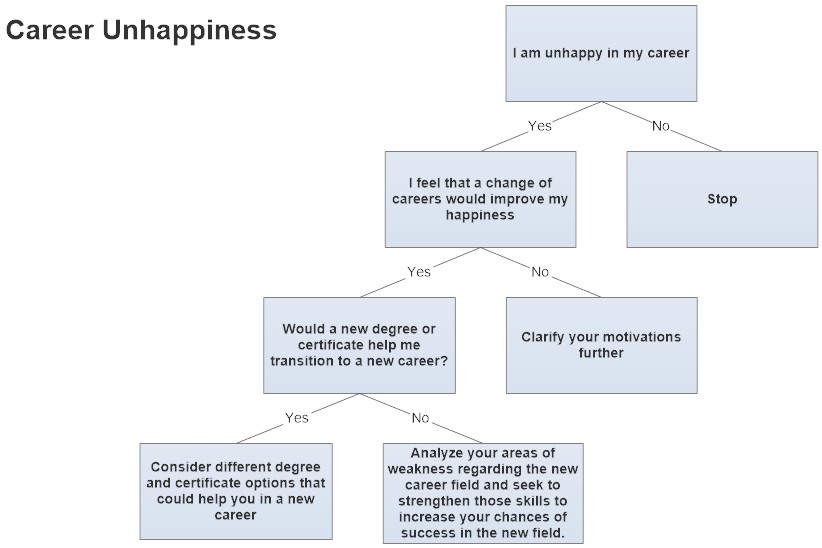By Dr. Robert Gordon
Program Director, Reverse Logistics Management
Are you happy in your career? Many of us of ask ourselves this question at some point in our professional lives.
You don’t have to be at the point where you hate your job before you wonder whether or not you took a career misstep. Once you reach this point, you start to explore other options without putting together a plan.
The natural reaction to career unhappiness is to drift along for a while, dreaming about what is wrong and what could be improved. Although you may find that dreaming is therapeutic, a better course of action is to start working on a new plan for a career change.
Creating a Constructive Career Plan
Most people don’t take the step of making a career plan because they fear the plan will change anyway. While the future is uncertain, having a solid plan helps you achieve your professional goals faster and focus on a direction to support your career change.
Make Sure Your Career Plan Has Flexibility
It’s important to create a plan that has sufficient flexibility to allow for alternate forms of success. Be careful not to confuse a goal and a plan: A goal is an absolute and a plan should be flexible.
Think about Why You’re Unhappy with Your Current Job
If you’re not happy in your career, a good starting point is to think about exactly what is making you unhappy. Is it the job? Is it the people? Is it the company?
All of these possibilities should be examined and considered before you make a fresh start. You don’t want to throw away a potential opportunity.
Determine What You’ll Need for a New Career
You might determine that a career change would be best for you. You may have to earn a new degree to switch to that field.
Another option would be to earn a certificate to supplement your current degree and gain more specialized skills that help you move to a new career. Certification is often faster than earning a new four-year or two-year degree and allows you to learn more about a new career field before you enter it.
Know the Realities of a New Career Field
Keep in mind that just wanting to be in a new career might be different from the reality. You might find the new career exciting at first, but be sure to gain more knowledge so you’ll know exactly what you face by working in that career.
Map Out Your New Career Direction
Mapping out and considering alternatives helps you build a flexible plan with multiple alternative paths to success. Below is a brief decision tree to help with the development of a new plan.
It’s important to develop a career plan that has multiple paths. Do not limit yourself to a single goal to achieve your career transition. Get creative with your career transition by:
- Doing volunteer work in your new career area
- Looking for an internship with a company in the field
- Networking with people in the field to find out who is hiring and what skills they require. Many times, companies need specific skills to fill a role, and that could be an opportunity to make a change.
Keep in mind the sooner that you build a plan, the sooner that you can start your career transition and get on the path to career happiness.
About the Author
Dr. Robert Gordon has 25 years of professional experience in supply chain and human resources. Robert has earned a Doctorate of Management and Organizational Leadership, an MBA and a B.A. in History. He has authored over 100 published articles, including five books covering a variety of business topics.

